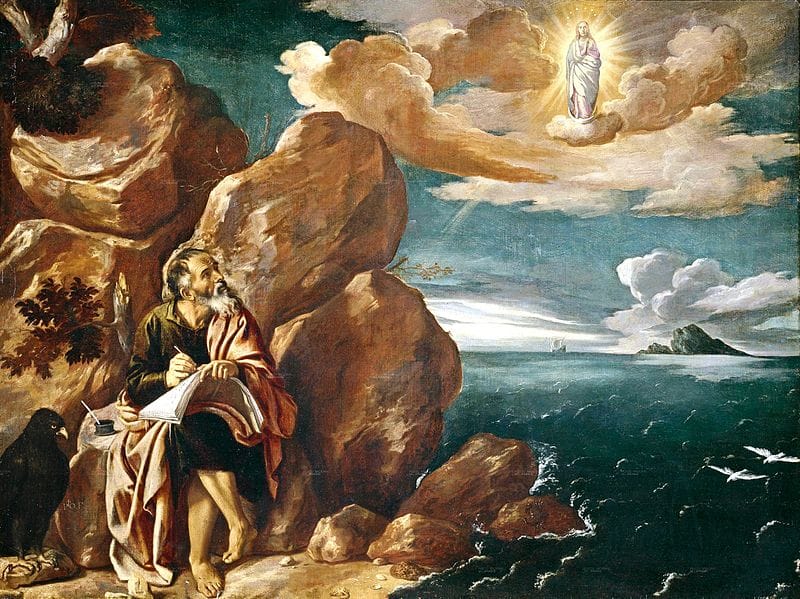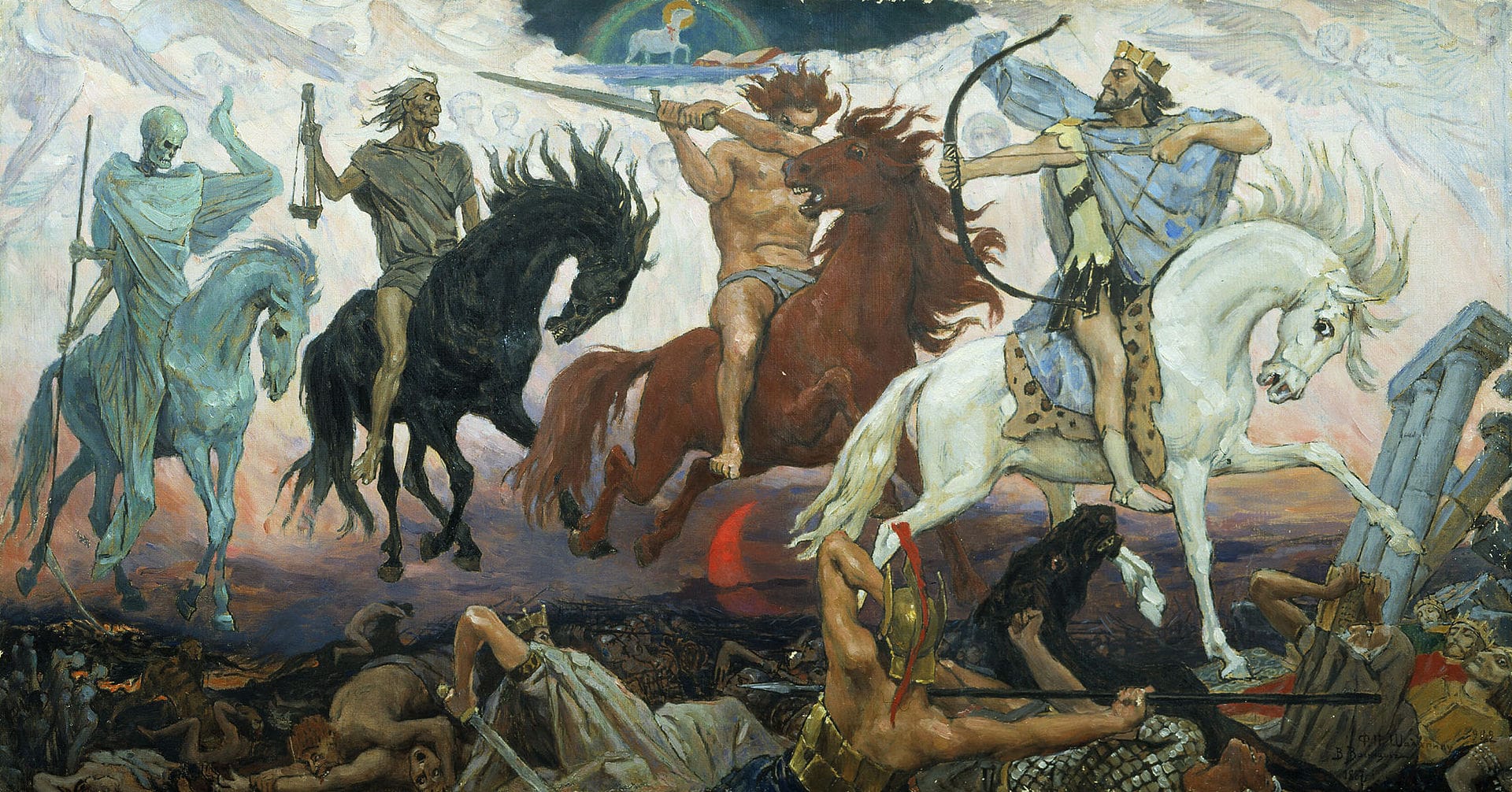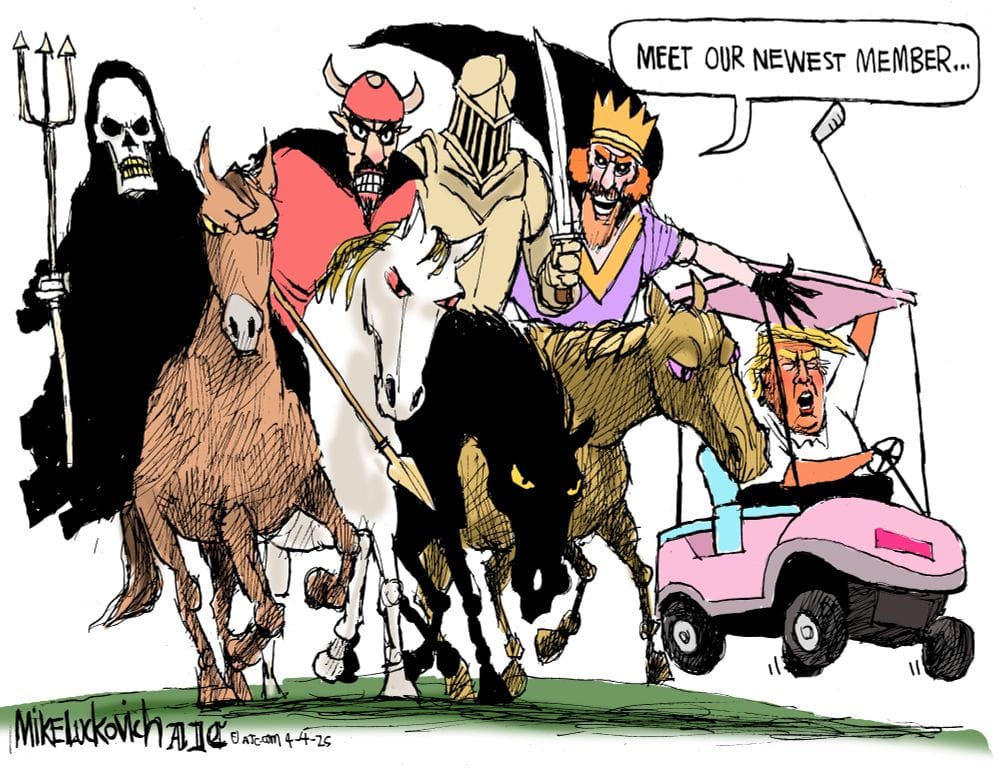Wishing for the Apocalypse

The thing about the Apocalypse is: how can we distinguish between projecting our own personal anxieties onto the chaos around us, versus believing what the scientists say? For example, St. John of Patmos clearly was projecting his own personal anxieties when he wrote Revelation around AD 81–96. The dragons, serpents, beasts, seals, etc. make for a wonderful work of surrealist imagination, but perhaps he feared Greek culture being subsumed into the Roman empire while Christians were being persecuted. Today’s doomers also wish for the apocalypse. With these things it’s always personal.
I think the ancient Vikings had it right: the Apocalypse (Ragnarök for them) would be a battle between fire and ice – where fire giants and ice giants battle it out with the old gods. Or, in today’s terms, rising temperatures and shifting weather patterns and ocean currents are leading to the extreme weather, devastating fires, floods and hurricanes we see today, battling it out with climate denialism.

The metaphor works well in conjunction with St. John’s Four Horsemen of the Apocalypse – invasions and pestilence, war, famine and death because, for the first time, all of human life is at risk of extinction – as are other species - in what science writers call The Sixth Extinction (Elizabeth Kolbert). If The Four Horsemen were once local in nature - even the Black Death and limited nuclear war - then our extinction now could be global.
Even 50 years ago, ideas about the apocalypse mostly did not attribute it to human carbon emissions. Overpopulation yes, but scientists focused on “natural disasters” like crop failures, water shortages, pandemics and mass migrations. Local stuff. Humans have always experienced those. Climate change is different. Most apocalyptic thinking now allows that things will deteriorate slowly but steadily this century and then, possibly, all at once, if a major tipping point is reached, like the permafrost thawing. Will humans reduce carbon emissions and reverse the current trend? When have humans ever succeeded in doing something like that?
As Robert Frost wrote in 1922:
Some say the world will end in fire,
Some say in ice.
From what I've tasted of desire
I hold with those who favor fire.
Or, as modern cartoonists see it:

Also see:
More on Ragnarök here
Apocalypse in the West in the 1920's here
For Rubens' The Virgin as the Woman of the Apocalypse here
